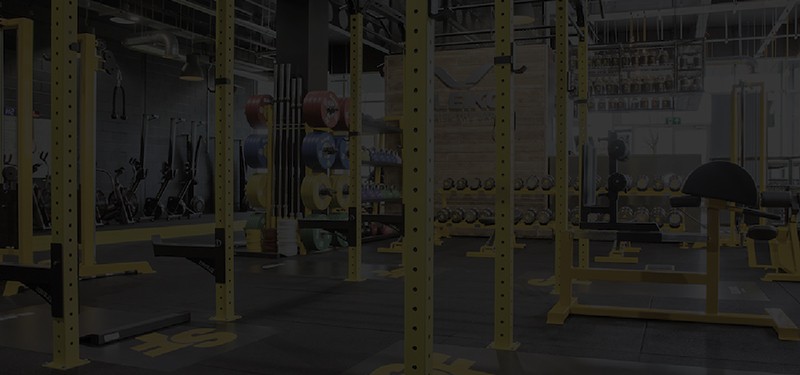The festive period is fast approaching – it’s a time to relax, spend time with friends and family, and enjoy some seasonal food and beverages. But, if you are into your fitness, it can also be the time that derails your training, upsets your diet, and leads to fat gain.
On the one hand, you could just relax and enjoy Christmas and then get back into training on January 1st, full of motivation and New Year’s resolutions – not to mention Christmas cake! However, if you’d prefer not to backslide, you’ll need to implement a few Christmas survival strategies.
Here are SIX ways to avoid falling off track this Christmas…
1. Exercise at home
Gyms often close over the festive season and not training, combined with overeating, is all-but guaranteed to lead to fat gain. Don’t let a closed gym stop you from exercising – plan some home workouts instead.
While you might not be able to do the type of training you prefer e.g. bodybuilding, you can still burn off some calories, preserve muscle mass, boost your metabolism and increase your insulin sensitivity.
Bodyweight circuits, resistance bands, jumping rope, and using a suspension trainer like a TRX are all good options. Ultimately, any exercise is better than no exercise – even a jog around the local park on Christmas morning!
2. Focus on protein, easy on the carbs
Many of us eat too much at Christmas – it’s hard not to. Exercise some damage limitation by focusing more on protein and less on carbs. Turkey and other festive meats are loaded with muscle-preserving, metabolism boosting protein, which is unlikely to be converted to fat. In contrast, desserts, bread, and tins of carb and sugar-loaded sweets and biscuits are easily converted to ugly body fat.
By all means relax your diet a little but, if you are going to overeat, pump up the protein as that will do the least amount of damage.
3. Use smaller plates
If you are serious about avoiding festive season overeating, consider eating your meals from smaller plates. If you put less food on a regular-sized plate, it’s obvious to your brain that you are eating less. However, if you put that same smaller portion on a small plate, your brain is fooled into thinking it’s a regular-sized meal.
Use smaller plates, smaller bowls, and even smaller glasses so that you can enjoy festive food without overeating.
4. Keep score
It’s very easy to overeat when you have no visual way of keeping track of how much food you’ve consumed. However, when there is evidence all around you, you should find you are less inclined to eat too much.
To make the most of this phenomenon, keep the wrappers from sweets you have eaten, empty beer bottles, nut shells, etc. in plain sight as a visual reminder of how much you have eaten. That way, you’ll be more mindful of what you have eaten and are less likely to overeat inadvertently. This is especially valuable when you are sat in front of the TV, and your mind is otherwise engaged.
5. Go easy on the alcohol
For many people, the festive season means drinking more alcohol than usual. A couple of beers or glasses of wine fine, but large amounts of alcohol can quickly lead to weight gain. Alcohol contains seven calories per gram, and most drinks contain several hundred calories. Alcohol also interferes with fat burning and can make you hungry – there are lots of ways that alcohol lead to weight gain!
Enjoy alcohol in moderation if you wish but, if you want to avoid consuming too much, “superset” alcoholic beverages with water or diet soda to half your intake. You could even volunteer to be the designated driver so you cannot drink at all.
If you are drinking, refined spirits are generally lower in calories than beer and wine.
6. Train before eating
Intense exercise increases your sensitivity to insulin which means the food you eat after training is preferentially shunted into your liver and muscle cells, and away from your fat cells. If you know a big meal is all-but unavoidable, limit fat gain by training an hour or so before you are due to eat. Do a full-body workout to maximize insulin sensitivity.
If a workout is not possible, you can get a similar, if somewhat weaker, effect by tensing your muscles as hard as you can for 30-60 seconds.
Just before you are about to eat, find a sturdy wall and stand with your back to it. Bend your legs and slide down the wall so your thighs are parallel to the floor. Put your hands together in a sort of praying position in front of your chest. Push inward with your arms and backward with your legs as hard as you can. Hold for 30-60 seconds or until you feel your muscles burning.
This odd but effective strategy increases glut4 production which is a signalling hormone that helps with nutrient partitioning. Doing this before a meal will ensure more of the excess nutrients you are about to eat end up in your muscles.
Christmas is a time to have fun, but that doesn’t have to mean weight gain or lost fitness. Put these strategies into practice, and you could be one of the few people who doesn’t need to start a diet on January 1st!












1 Comment
Comments are closed.